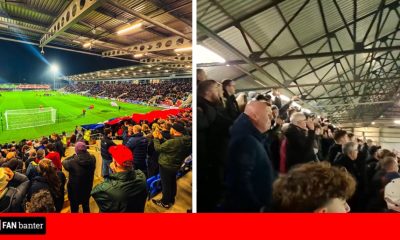The FA Cup has always been associated with its magic, the notion that any one day, a smaller team can defeat a giant. This season, there is, however, one trend that has been outstanding: early kickoffs have been generating more shocks compared to evening matches. It’s not random. From player conditioning up to stadium ambience, the lunchtime kickoffs have many reasons why underdogs often excel in this experience.
Why timing matters
Footballers are habitual creatures. Most league games are played in the afternoon or evening, so pre-match meals, the time spent on warm-up, planning and mental preparation are all generally on a regular schedule. The initial FA Cup games break that trend.
Players are regularly adapting to when a match kicks off at 12:30 pm, a shorter sleep cycle, earlier travel times, different pre-match meals, and less tactical preparation time.
Rhythm and structure are requirements of top-level teams. Once that rhythm is broken, the difference of quality can be narrowed, even by slight measures. Even when nothing to lose is on the line, even when the stakes are sometimes low, it can be the difference between the underdogs and the prima donnas.
Another significant factor is crowd influence. Kickoffs are early thus reducing energy in stadiums. Fans are still rising, trains are still getting crowded and there is just less time to allow the pre-match buzz to develop. The hosts are deprived of part of the psychological edge that a screaming home crowd gives. These are some of the factors FA Cup predictions from football experts consider when giving out tips.
When the air is smoother, crowd pressure does not affect referees as much, favourites cannot develop a momentum, the game becomes more vigilant and wary, and that is the kind of match that underdogs usually like.
Squad rotation is massive
Big club managers tend to change frequently during early-stage FA Cup games, particularly when they are balancing league, European and domestic cups. Rotating does not merely imply changing players, but changing chemistry.
A common starting 11 has instinctive knowledge of the movement of each other. Even a turned side is skillful, yet not always fluent. This is the place where smaller units that have been playing week after week have an edge. Their combination can cause the individual quality of the opponent to falter in the crucial moments.
Underdogs are not expected to dominate. They need one moment. A corner. A counter-attack. A goalkeeper error. It is on those margins that the FA Cup has been built.
Soon-weary legs and dragging notes even the score
Initial rounds are held in winter, when pitches are heavier and the weather is wet and unpredictable. High pitch makes the game slow and diminishes the efficiency of quick, technical, possession-oriented sides. It also favors direct play, defensive blocks and set pieces which are frequently strong in lower-league teams.
Add to that the fact that big clubs are relieved of busier schedules, and the game is somehow even-footed than you anticipate.
The trend is supported by recent examples.
At least a few upsets have occurred in this season during the early kickoffs:
- Premier League clubs are taking breaks with star players and being outmanoeuvred.
- Championship, League one and even non-league teams who defend deep, remain organized and wait until their openings.
- Games that appeared to be easy on paper become tense, chaotic, and narrowed-down games.
The pattern has manifested itself frequently enough to be more than a mere coincidence.
What managers and analysts have come to know
Managers no longer plan when it comes to early kickoffs in the FA cup. Others would take the players to hotels a night or two before to avoid disrupted sleep. Others consider the early affiliations as an away game and lay more emphasis on mental preparation as opposed to tactical advantage.
Analysts and betting models have also started to consider the kickoff time as a part of the match probability. Upset likelihood rises when:
- The favourite is swinging great
- The physical underdog is at home
- Attendance is reduced
- The weather is poor
- Travel schedules are tight
It is not magic, it is math and human nature coming together.
The FA Cup is unpredictable, yet the indications exist.
The beauty of the FA Cup is that anybody can write history. But being aware of the time of most of the shocks does not make the fun less enjoyable, it adds to the anticipation.
Thus, when you are looking through the list of fixtures and ask yourself where you will get the upset, consult the schedule. The early kickoffs are not merely an inconvenience anymore they are now drama fodder.
At the beginning of the game, when the glare is not so strong, before the stadiums are packed, before the giants are in their stride, then is the hour of the underdogs.













You must be logged in to post a comment Login